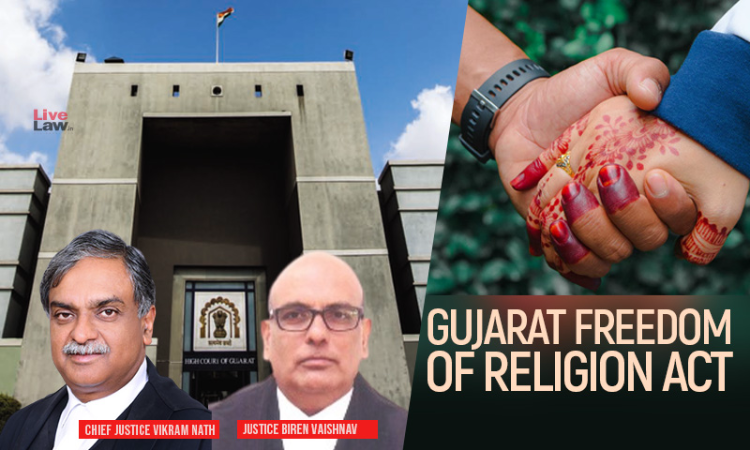"Choice Of Religion Is Between Two Individuals": Gujarat HC Seeks Govt. Reply On Plea Challenging Gujarat Freedom Of Religion Act
Sparsh Upadhyay
5 Aug 2021 7:11 PM IST

Next Story
5 Aug 2021 7:11 PM IST
The Gujarat High Court today issued notice to the Gujarat State Government challenging the vires of the Gujarat Freedom of religion Act, 2003 as amended by the Gujarat Freedom of Religion (Amendment) Act, 2021 noting that it is for the married couple to decide which Religion to follow (in case of inter-religious marriage).Read more about the Act here: Gujarat Assembly Passes Freedom Of...
